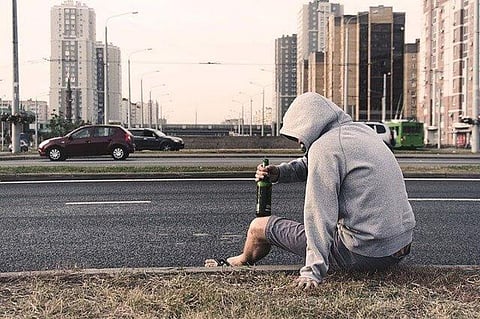
- Home
- न्यूजग्राम
- NewsGram USA
- India
- World
- Politics
- Entertainment
- Culture
- Lifestyle
- Economy
- Sports
- Sp. Coverage
- Misc.
- NewsGram Exclusive
- Jobs / Internships

People with anxiety and depression are more likely to report an increase in drinking during the Covid-19 pandemic than those without mental health issues, a new study suggests. The study, published in the journal Preventive Medicine, indicates that while drinking grew the most among younger people, older adults with anxiety and depression saw a sharper increase in their risk for harmful alcohol use.
"This increase in drinking, particularly among the people with anxiety and depression, is consistent with concerns that the pandemic may be triggering an epidemic of problematic alcohol use," said lead author Ariadna Capasso from the New York University.
Follow NewsGram on LinkedIn to know what's happening around the world.
For the study, the researchers created and administered an online survey in March and April 2020, using Facebook to recruit US adults from all 50 states. The researchers asked participants about their alcohol use during the pandemic, gathered demographic information, and measured symptoms of depression and anxiety based on self-report.
29 percent reported increasing their alcohol use during the pandemic. Pixabay
Of the 5,850 survey respondents who said that they drink, 29 percent reported increasing their alcohol use during the pandemic, while 19.8 percent reported drinking less and 51.2 percent reported no change. People with depression were 64 percent more likely to increase their alcohol intake, while those with anxiety were 41 percent more likely to do so.
Drinking behaviors varied by age. In general, younger adults under 40 were the most likely to report increased alcohol use (40 percent) during the pandemic, compared to those 40-59 years old (30 percent) and adults over 60 (20 percent). However, older adults (40 and older) with symptoms of anxiety and depression were roughly twice as likely to report increased drinking during the pandemic compared to older adults without mental health issues.
"We expected that younger people and those with mental health issues would report drinking as a coping mechanism, but this is the first time we're learning that mental health is associated with differences in alcohol use by age," said Yesim Tozan from the varsity said. (IANS)
